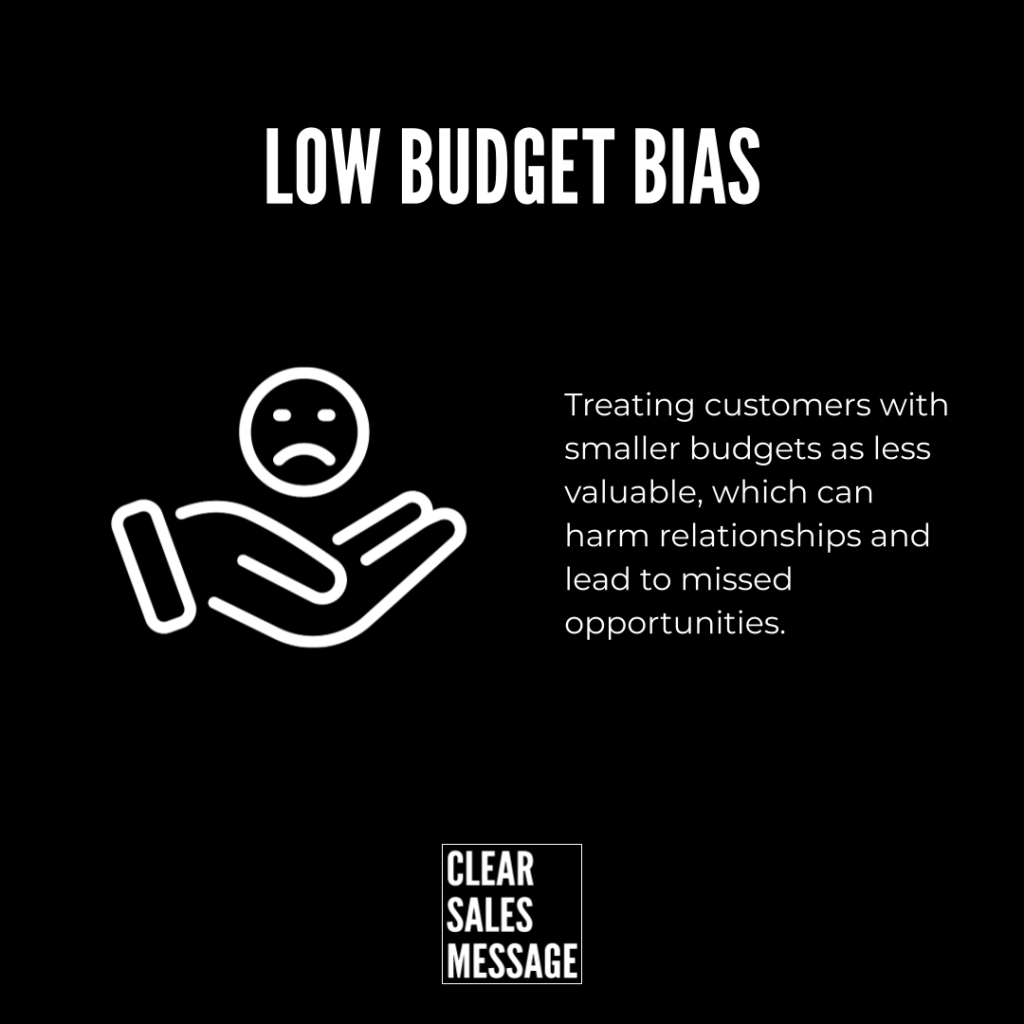Practical Sales Training™ > How To Lose The Sale> Low Budget Bias
What is Low Budget Bias?
Low Budget Bias is the subconscious tendency to treat customers who have less money to spend as less valuable. In sales, this often shows up as giving “low budget” prospects less attention, offering poorer service, or assuming they aren’t worth your time. This mindset not only damages your reputation but also leads to missed sales opportunities and poor word-of-mouth.
From an ethical and strategic perspective, every customer deserves respect, regardless of budget. A small sale today could lead to a much bigger one tomorrow – or a referral to someone who can spend more.
How Does Low Budget Bias Work?
Low Budget Bias creeps in when salespeople assume that only “big spenders” are worth their time. This might be due to commission structures, pressure to hit sales targets, or even personal biases. The problem is that this approach is short-sighted:
-
Customers with smaller budgets can grow over time.
-
Word-of-mouth referrals don’t depend on how much someone spends.
-
Treating customers differently based on budget often damages your brand.
How Can You Use This in Sales?
The solution isn’t to treat everyone the same regardless of need – it’s to treat everyone with equal respect. Build trust and value with every customer:
-
Focus on solving problems, not just making big-ticket sales.
-
Offer smaller packages, entry-level services, or “starter” options.
-
Show genuine interest in every customer’s needs, regardless of budget.
When you remove Low Budget Bias, you build long-term loyalty and a reputation for fairness that will help you win more sales.
Hypothetical Example of Low Budget Bias:
A local gym has two types of customers:
-
Premium members paying £100/month for full access and personal training.
-
Budget members paying £25/month for basic gym access.
The staff tend to greet premium members warmly, offer them advice, and even check in on their progress, while budget members are largely ignored or treated like they’re “not worth the time.”
One budget member, feeling unappreciated, cancels their membership and joins a competitor gym. What the staff didn’t know was that this person was about to upgrade to a premium package and was a popular fitness blogger who could have sent dozens of referrals their way.
By undervaluing the “low budget” member, the gym not only lost potential revenue but also damaged its reputation.
See also



